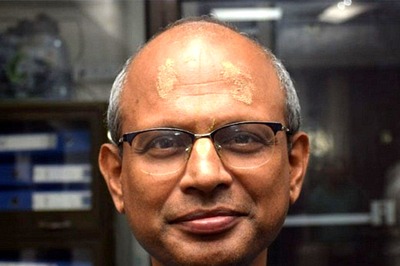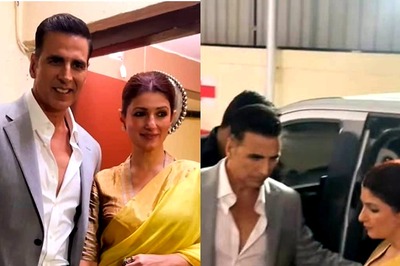
views
New Delhi: On 11 May in 1998, the then Prime Minister of India Atal Bihari Vajpayee took a step that changed the way India was to engage with the world in the future.
In a short televised statement that will remain etched in India’s history, Vajpayee announced to the world that India had conducted nuclear tests in Pokhran.
Followed by Pramod Mahajan, at the press meeting in New Delhi, Vajpayee said, “I have to make a brief announcement. Today at 1545 hours, India conducted three underground nuclear tests in the Pokhran range. These tests conducted today dealt with a fission device, a low range device and a thermo-nuclear device. The measured yield are in line with expected values. Measurements have also confirmed that there was no release of radioactivity in the atmosphere.”
The Pokhran II nuclear test, put India’s relationship with some of the big global players under intense stress. The US slapped economic and technical sanctions on India. It was a period of global isolation but within two years the situation eased out. Sanctions were lifted and the pressure to sign the Comprehensive Test Ban Treaty did not come in the way of the first US president visit in 22 years to India. Bill Clinton wrapped up his five-day visit with the signing of the ‘vision document’.
The joint statement candidly pointed out how the two countries, “at the dawn of the new century”, will try to leave behind the past and forge a new relationship. It said, “There have been times in the past when our relationship drifted without a steady course. As we now look towards the future, we are convinced that it is time to chart a new and purposeful direction in our relationship.”
Though Clinton told the Parliament in his address that he still believed that the Pokhran test was a mistake, he also signaled that the US genuinely wanted to extend a hand of friendship. This marked a re-calibration in US’ policy towards India post-Cold War. The foundation of the Indo-US ties, as they exist today, laid by Vajpayee and later built upon by his successor Manmohan Singh.
The 1998 Nuclear test also had a fallout in the neighbourhood. Pakistan conducted its own nuclear test. But determined to change the course of Indo-Pakistan relations, Atal Bihari Vajpayee undertook an unprecedented bus journey to Lahore for a summit meeting with Nawaz Sharif in February 1999.
Vajpayee addressed the Pakistanis on TV saying, "Ye bus Lohe aur Ispat ki nahi hai, Jazbat ki hai. Bahut ho gaya, ab hamein khoon bahana bandh karna chahiye (This bus is not made of steel and iron, it is made up of our sentiments. Enough is enough.We must put a stop to bloodshed).”
But this gesture was met by a huge betrayal, not at the hands of Sharif as the former Pakistan Prime Minister claimed, but that of the then Pakistan military chief Pervez Musharraf. The ‘misadventure’ of Kargil by the Pakistani military tested India’s intent on improving ties with its neighbour. But two years down the line, Vajpayee decided to give it one more shot. Ironically, this time it was the brains behind the Kargil conflict, Pervez Musharraf who was at the helm of affairs after a military coup.
Some in the know say that the decision to invite Musharraf was one initiative taken by Vajpayee without consulting his closest aide: Brajesh Mishra, his principal secretary. The Agra summit proved to be a disaster. In fact it worsened the relations between the two sides. Terror outfits backed by the ISI continued to target India. Finally, on 13 December, 2001 the JeM launched an audacious attack targeting the heart of Indian democracy, the Parliament.
This lead to operation Parakram, the biggest military mobilisation after 1971. Pakistan too mobilised its military. But a full blown confrontation in 2002 was avoided after intense American pressure on both India and Pakistan. But Vajpayee, whose foreign policy that will largely be remembered for the repeated attempts at thawing the tension with Pakistan, took one more chance in 2004 as he travelled to Islamabad in January. This time extracting a promise from Musharraf that Pakistani territory will not be used against India. And while Pakistan is still to live up to that promise, Vajpayee himself lost the elections in May that year making way for the Manmohan Singh government.


















Comments
0 comment